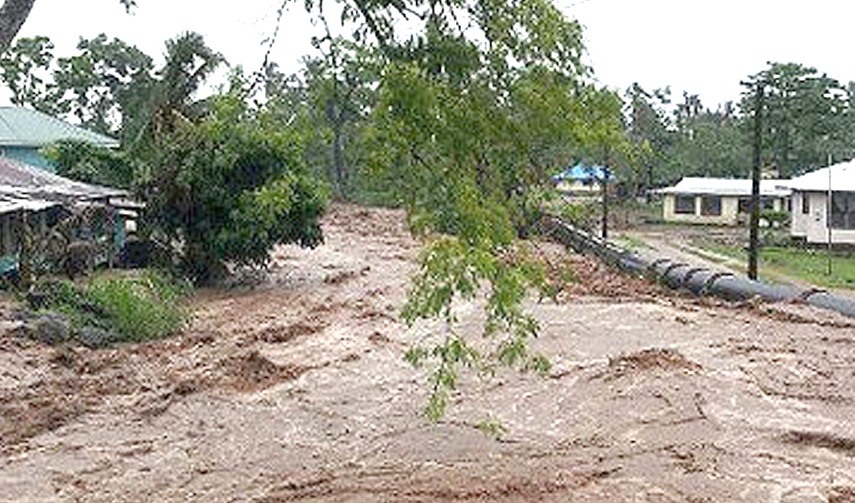By Mataeliga Pio Sioa

Cyclone season! We all know about that don’t we? We have all felt it too.
When category 5 Cyclone Lola swept across Vanuatu a few days ago and damages were reported, especially to the northern part of country, it was easy enough for us to relate.
Destructive winds gusting up to 295km an hour “…left a path of destruction with damage to houses, schools, infrastructure, plantations, and roads…” , felt familiar enough.
We know what the hurtling movement of the air is like. The howling sounds have also left us in a frightening shudder as the cyclone winds swept out on any angry path of destruction.
Our past experiences have been numerous and always around this time of the year. The point was reached where we are forced to name this rage of nature the ‘’Cyclone Season.’
Still, it does not lessen our thoughts and concerns at the threats, in this particular instance, to our neighbours safety from Cyclone Lola.
A thankful sense of relief is always there when in the aftermath we hear that “….as bad as the damage appears to be, that preparedness and early warnings once again saved lives.”
This was how the rescue efforts by the Vanuatu Red Cross assessed the aftermath of the damaging winds.
0nce again the lesson for us is when life is involved, safety and protection ranks above all. Everything else can be restored or replaced but not the loss of life.
Whether it is in Vanuatu, Samoa or anywhere else in our Pacific Island region, personal safety is paramount.
The thought that it is the cyclone season and our turn will come, is one where we would prefer not to dwell on, but then it is folly to ignore the counsel of our past experiences.
What we cannot blind ourselves to is our very own protection at the personal as well as the wider community and national levels.
Fortunately, we have to a very large extent become responsible enough to respond to the call for safety at times like this.
Our personal experience will vouch for that.
At the same time too, we do have the reckless amongst us, either through negligence, indifference or both.
The risk they pose to safety is not just to themselves alone but to those around them as well which is unfair and unfortunate but such is the reality we are so well aware of.
One person who knows that all too well, from years of experience as a safety/rescue worker, is Commissioner Tanuvasa Petone Mauga of the Fire Emergency Services Authority, FESA.
Tanuvasa and his trained staff have found from first hand experience that their life saving services are less urgent or challenging in times of natural disasters when people respond well to safety advises.
His more notable experiences are with cyclones, flooding and even prolonged dry spells.
“Families are much safer if they move to safer locations before a flooding river overflows its banks and crashes into homes,” Tanuvasa gave as one example of taking responsibility for personal safety.
Similar advisories were made of moving to safer accommodations until the dangers have passed of cyclone damages to homes not strong enough to hold up against wind force.
During the dry season the urgent safety call is not to burn the rubbish in the open where the threat of the fire spreading is quite high.
What becomes deeply regrettable is when the irresponsible actions by only a few leads to unnecessary personal loss, distress, sorrow and grief to the innocent.
When the call to rescue goes out, it is people like Commissioner Tanuvasa and his staff who have to answer, it is their job and responsibility.
Doing so places them in the same safety risks as the victims they are required to save. But their safety and wellbeing becomes secondary to the victims they must rescue if or when the loss of life are at extreme risk.
Other service providers like the police, medical personnel, community services and even the general public forced by circumstance to help are all exposed to danger as well.
The question to ponder seriously, while our cyclone season exposes our personal safety to the risks of natural disasters, is whether we can live with the guilt of being the cause of sorrow and grief for others.
How can your negligence or indifference to the safety of others be condoned if it is at the cost of saving your life?
Be safe. Stay safe.
Be mindful always of the safety decisions you make and take for yourself and others who trusts in your guidance and leadership.
Give that a serious thought.
